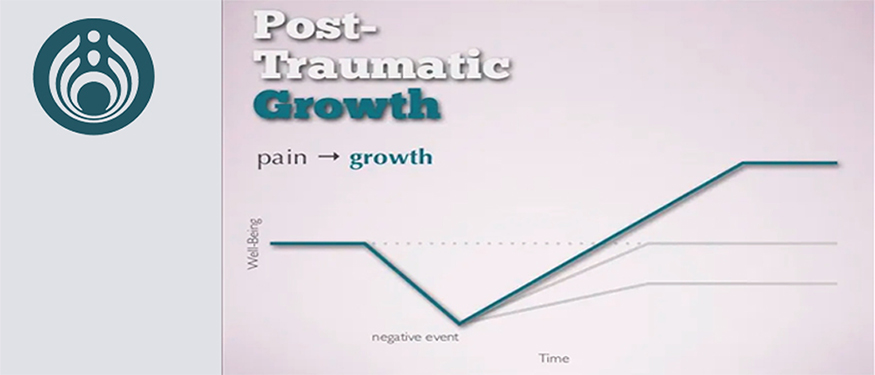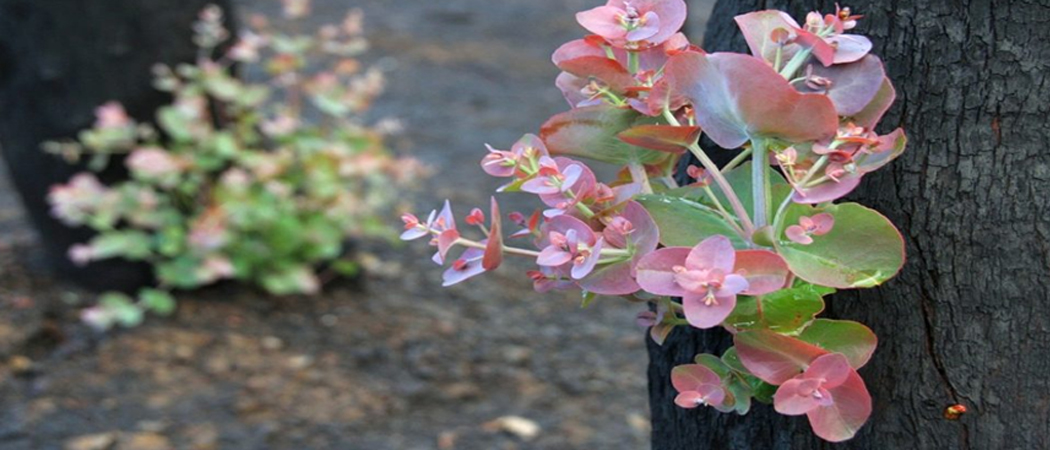Post-traumatic Growth – profoundly positive for Mental Fitness
You may be familiar with Post-traumatic Stress Disorder (PTSD), however are you familiar with Post-traumatic Growth (PTG)?
Affording ourselves optimistic licence (Growth Mindset), we can consider ourselves in extremely fertile ground for unexpected positive outcomes as we embark on 2021.
It could be easy to blindly think that the dawn of this new year was going to mystically reset our lives back to the pre-Covid-19 living conditions that many of us enjoyed. In reality, for many people, things have remained exhaustingly unknown and problematic with restrictions changing daily in response to the spot fire spread of the disease. Circumstances like Covid-19 can invariably produce psychological distress for people exposed to such highly stressful events.
However, given skilful coping strategies, people can indeed adopt a positive outlook moving forward. We know positive outcomes are very realistic given the well-documented research confirming the potential for positive psychological change after challenging life circumstances. This process of change is generally referred to as ‘Post-Traumatic Growth (PTG)’.
The general understanding that suffering and distress can be possible sources of positive change is thousands of years old. For example, some of the early ideas and writings of the ancient Hebrews, Greeks, and early Christians, as well as some of the teachings of Hinduism, Buddhism, and Islam contain elements of the potentially transformative power of suffering (Tedeschi & Calhoun, 1995).

Post-traumatic struggle – some common aspects
Let’s take a brief look at the negative aspects, associated to a traumatic event, that can cause people distress and have a negative psychological impact. Fear, frustration, confusion, loneliness, sadness and ultimately depression can potentially be common negative responses. It is worth considering that the intensity, severity, and duration of this negative impact (direct or vicarious), resulting from an event like Covid-19, can persist for a long time after the actual event is over. Consequently, during such events, people tend to experience unhelpful, intrusive, ruminative thoughts that tend to cause them unpleasantness and distress.
Some of these unhelpful thoughts could be initiated by:
- Listening to excessive media reports that are ‘doom and gloom’.
- Associating with people who have the natural tendency for pessimistic thinking.
- Questioning or doubting your financial security, future wealth, or ability to sustain your current spending habits.
- Questioning the insecurity or stability of your current and future employment prospects.
- Buying into unfounded hysteria around social and political propaganda (negative feedback loop creating herd mentality).
- Avoiding community connectedness, including via digital platforms.
- Ignoring or not accessing information on how to improve your coping skills.
- Excessively worrying about aspects of the event that are beyond one’s control.
Post-traumatic growth – fertile ground for positive change
Conversely, post-traumatic growth is the experience of positive change that occurs as a result of the struggle with a highly challenging life crises, such as Covid-19. This positive change can manifest in a variety of ways, including an increased appreciation for life in general, more meaningful interpersonal relationships, an increased sense of personal strength, changed priorities, and a richer existential and spiritual life.
The space and time that Covid-19 has provided us has afforded pro-active people an opportunity to invest time and energy in identifying personal opportunities for growth and development. For instance, developing the capacity for resilience and mental toughness, in the face of the current uncertain Covid-19 environment, can indeed result in PTG for an individual, their family, and the whole community.
For the process of PTG to be enabled, the individual must demonstrate a resilient and mentally tough mindset (an ability to deal effectively with challenge, stressors and pressure…irrespective of circumstances – Strycharczyk & Clough), where this event can be contextualised as an opportunity for learning and growth.
Helpful thoughts to support post-Covid 19 PTG
In retrospect
- Evidence gathering – realistically review how your life has been affected by the related events. Our experience has included many people expressing gratitude toward the reduced stress that being in isolation has afforded them (no business travel, more time with loved ones).
- Optimistic thinking – choosing the most positive lens. What unexpected experiences can you be grateful for? Has this allowed you greater time to reach out to people you were otherwise too busy to connect with.
- Relationships – what valuable connections have you made with family or friends? Have you developed new friendships or deeper bonds during 2020?
Moving forward
- Identify information and support – readily available, this will help you acquire the knowledge and skills, via a pro-active approach to informing yourself, which will support PTG.
- Responding to restrictions – what hobbies (current and new) can we undertake that will be a healthy and enjoyable distraction from any external restrictions or noise.
- Assure yourself and others – you are equipped to handle any situation (practical and hypothetical) – and adopt and nurture a voice of calm and reason.
- Acknowledge the uncertainty you feel – this is extremely healthy – be mindful of your emotions, as they are completely normal, but do not be dictated by them or ruminate on negative thought loops.
- Monitor what you can effectively control – do not engage in all the external noise (media, ill-informed opinions of others) that you have no control over and even less energy to waste on. Can control – Shopping responsibly; sticking to a healthy routine; staying in touch with friends and family via phone and digital platforms. Cannot control – Others neglecting social distancing rules; actions of the government and other organisations; availability of some products in the shops.
- We are hardwired to connect with other people when we are struggling. However, due to potential physical isolation, we can tend to be less likely to want to interact with others. Be mindful of this and take action to connect with others.
Post-Traumatic Growth – what do you need to consider?
- What are your beliefs and assumptions about the world (schema)? This subsequently shapes your understanding of events like Covid-19. Your understanding guides your response and actions to these events (Janoff-Bulman, 1992; Parkes, 1971).
- What psychological skills do you possess that can help you to cope? Constantly seek out opportunities to enhance your psychological knowledge and skills. Contact us to identify your most effective course of action.
- Your reaction (strategy for psychological survival) to a new reality, in the aftermath of a traumatic event, determines the extent to which post-traumatic growth occurs.
- You need to mindfully appreciate your new reality, even though you may not like it. Positively consider what it offers in your broader life context.
Dr Martin Seligman (Director of the Penn Positive Psychology Centre) found that with the right support and a positive process, for approaching and responding to trauma, individuals can readily enjoy PTG.
“Sometimes adversity is what you need to face in order to become successful”. Zig Ziglar.
Some connected articles
Visit our article on ‘The Eight Factors of Mental Toughness’, which offers supporting evidence of contrasting thought processes and outcomes relating to Mental Toughness and PTG.
Identifying and employing your ‘Signature Character Strengths’ can greatly support your approach to PTG in 2021. By developing an authentic (the real you) approach to employing your strengths will energise you for PTG as it promotes feelings of joy, zest, and enthusiasm.
Check out the article coming soon exploring and defining the concept of Growth Mindset vs Fixed Mindset.


